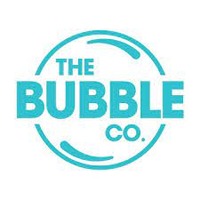The advent of the metaverse has ushered in a new era of digital interaction, transcending the traditional boundaries of online spaces. This virtual parallel world, where users can interact with a computer-generated environment and other users, offers a unique and immersive experience. As the metaverse continues to evolve, it presents a fertile ground for innovative metaverse marketing strategies. One effective approach to tap into this potential is by imitating real-life marketing techniques within the digital realm, a strategy that provides a solid foundation for businesses looking to explore metaverse marketing.
At its core, metaverse marketing involves promoting products, services, or brands within virtual worlds. By mirroring real-life marketing strategies, businesses can create a sense of familiarity and ease for users navigating these new spaces. This approach leverages the inherent human tendency to gravitate towards known experiences, even in novel environments. Thus, by applying traditional marketing tactics such as branding, events, and customer engagement in the metaverse, companies can effectively bridge the gap between the physical and digital worlds.
One of the key advantages of imitating real-life marketing in the metaverse is the opportunity to enhance brand engagement. Just like in the real world, virtual spaces allow for interactive experiences that can deepen the connection between a brand and its audience. For instance, companies can host virtual events or product launches that users can attend from anywhere in the world. These events can be as elaborate or as simple as desired, from concerts featuring digital avatars of popular artists to interactive product demonstrations. By creating memorable experiences, businesses can foster a strong community of engaged users who are more likely to become loyal customers.
Furthermore, the metaverse enables a level of personalization and interaction that surpasses traditional digital marketing channels. Through avatars, users can express their individuality and preferences, offering businesses valuable insights into their target audience. This information can be used to tailor marketing messages and product offerings, enhancing the overall user experience. For example, a fashion brand could offer customizable virtual clothing items, allowing users to try on and purchase digital versions of their products. Such personalized experiences not only increase user engagement but also pave the way for innovative business models and revenue streams.
Another significant aspect of metaverse marketing is the potential for viral marketing campaigns. Just as viral moments can capture the public’s attention in the real world, unique and creative marketing initiatives in the metaverse can quickly gain traction among its users. Leveraging social features and network effects within virtual worlds, companies can create buzz-worthy content that users are eager to share with their friends. This organic spread of brand messages can significantly amplify the impact of marketing efforts, reaching a wide and diverse audience at a fraction of the cost of traditional advertising.
However, while the benefits of metaverse marketing are clear, businesses must also navigate its challenges. Privacy concerns, technological barriers, and the need for a nuanced understanding of virtual world dynamics are just a few of the hurdles that companies may encounter. To succeed, businesses must adopt a user-centric approach, prioritizing the privacy and security of their customers while delivering value and innovation.
Summing up, imitating real-life marketing strategies in the metaverse offers a compelling starting point for businesses venturing into this new frontier. By leveraging familiar tactics in an innovative digital landscape, companies can engage users, enhance brand loyalty, and open up new avenues for growth. As the metaverse continues to evolve, the possibilities for metaverse marketing are only limited by our imagination. Embracing this parallel digital world with open arms and creative minds, businesses can pioneer the future of marketing, building meaningful connections with their audience in ways never before possible.

